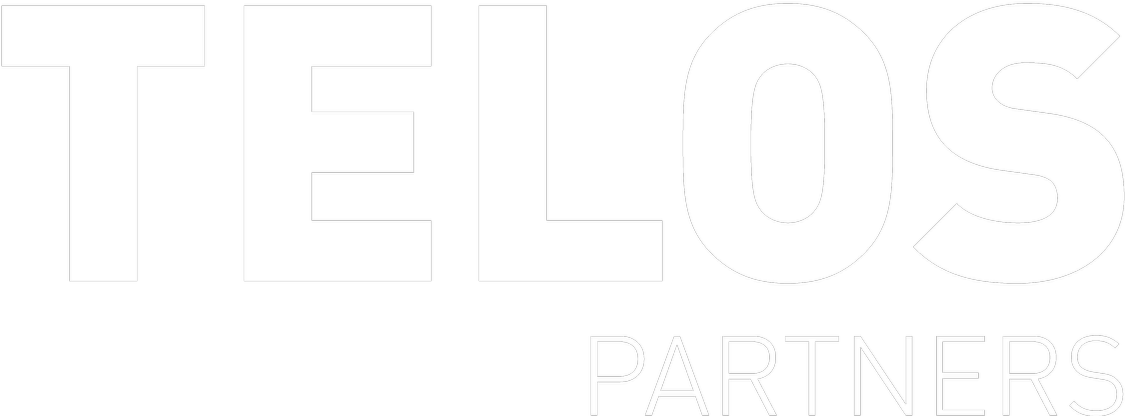Taking tough decisions as an employee-owned business
- Sep 23, 2025
- 6 min read

The UK might have narrowly avoided a recession so far, but the pressure on companies, leaders and boards remains intense.
These are tough times, and tough times bring tough decisions – particularly when restructuring, redundancies and cuts to hours are involved.
So if you’re the leader of an employee-owned (EO) business taking tough decisions right now, what should your priorities be? What is best practice?
Here, our experienced consultant Jeremy Gadd shares his reflections on Telos JGA's key insights – and five practical steps to support leaders taking tough decisions when they are EO.
Do your research – then clarify options
'Remember that in an employee-owned business you may need your Trust Board's approval if redundancies or significant changes are being considered'
You have a tough decision to make. Start by investigating your options, clearly setting out each one’s pros and cons.
‘This will help when it comes to seeking the support – or even agreement – from stakeholders,’ Jeremy says.
‘Remember that in an employee-owned business you may need your Trust Board’s approval if redundancies or significant changes to your structure are being considered.’
Next, do your research and check current best practice with trusted sources, including the CIPD and your legal advisors or accountants.
They will help you navigate the statutory requirements and meet minimum expectations.
You should be mindful of your business’s values, ethos and reputation too.
As Jeremy explains: ‘There’s nothing wrong with working to minimum statutory requirements. However, in a values-led business where internal and external stakeholders are more 'bought in', understanding, reflecting and living your values is very important.'
A poorly-considered action can have a significant impact on your reputation – risking your business’s sustainability in the longer term.

Keep your employee owners informed and engaged
One of employee ownership’s benefits is that the best solutions can come from within.
In companies with a genuinely effective employee-owned culture, the employees will already understand your business’s challenges and direction of travel.
‘While it might be scary to explain that tough decisions must be taken, if your employees are already informed and engaged those tough decisions should land more easily because they won't be a complete surprise,’ Jeremy points out.
Values-led businesses tend to work with transparency and appreciate honesty, so bear this in mind.

Avoid taking hasty action under pressure
So what mistakes might leaders make when taking tough decisions today – and how can they avoid them?
Jeremy agrees that the top two are taking ‘hasty action’ as a result of feeling pressurised because of rapidly evolving situations – and not seeking expert advice.
‘There’s a risk involved in just doing what might have been done before, because legislation, attitudes and expectations might have changed,’ he says.
Another pitfall can be the informal leaking of concerns and challenges, causing unnecessary unrest, speculation and distress.
Seek expert advice on best practice HR if you need it
'Creating the right HR policy for restructuring and redundancy [when all is well] will prove a wise investment for your employee-owned business if needed later'
Having the right HR policies in place (ideally from the start) will also support leaders when they face tough choices.
‘Creating the right HR policy for restructuring and redundancy might not be your priority when all is well, but it will prove a wise investment for your employee-owned business if needed later,' Jeremy explains.
‘Flexible working, career breaks and contractual flexibility as an employer might also afford a more open discussion / conversation when the tough times hit.’
Don’t forget to ensure any HR policy is updated to keep it legally compliant.
You should also take account of changes in attitude and expectations, especially around restructuring and redundancy. Seeking expert external advice can be particularly useful here.
Draw on the insight and value of your EO Trust Board
'An effective Trust Board will be asking the operational leadership to identify [the business's] current top challenges... and, more importantly, what plans are in place to mitigate their impact as early as possible'
As you’d expect, sound governance comes into its own when hard decisions need to be made.
In an employee-owned business, the Trust Board can add real value, with its oversight of the business risk register and role as a conscience for the Operational Board providing a positive support for effective decision-making.
‘Taking a more measured approach and looking through the longer strategic lens, the Trust Board can ask difficult questions during the good times and increase scrutiny and challenge as situations change,’ Jeremy says.
‘An effective Trust Board will be asking the operational leadership to identify the current top challenges facing the business and, more importantly, what plans are in place to mitigate their impact as early as possible.
‘Smoothing the curve of change and helping to minimise any shocks – this is where sound governance can pay real dividends,’ he adds.
Support your EO leaders to deliver change well

Of course, tough decisions don’t only affect those on the receiving end of difficult news.
Leaders are people too, so a good employee-owned business should be providing them with the right professional (and personal) support to deliver change well.
‘It’s easy to assume that senior leaders will be capable and ready to communicate and support the delivery of tough decisions,’ says Jeremy, ‘but the business should check that those who will be responsible for the implementation of any plans are well-informed and up-to-speed on all communications, decisions and what is open for discussion.
'In addition they should be supported. The business should provide the opportunity for this group to feedback and access specialist advice, even if it’s through an internal lead.'
Taking tough decisions as an EO leader – 5 practical tips

It’s a lot to take in. Here are five practical tips for EO leaders taking tough decisions in challenging times.
1. Make time to take stock as soon as possible
Don’t get wrapped up in the day-to-day – you need to be heads-up to the horizon so you can limit surprises.
Check with your trusted network for any incoming concerns. Chances are other EO business leaders will be considering similar challenges so ask around and share what you can in exchange.
If you're an MD, people & culture leader or employee trustee at one of Telos or JGA's current or previous EO clients, join one of our exclusive (and free) confidential EO peer support groups. Read more about our EO Connect networks and register your interest here.
2. Speak to specialist advisors before you get to the crunch
Seeking their input early could save time, energy and keep the whole situation calmer in the long term.
Telos JGA's experienced team has a strong track record of supporting EO leaders and boards to make employee ownership a key strength of their business – including during challenging times. Read about the support we can offer here.
3. If you’re an EOT, make the most of your Trust Board
A confident and effective Trust Board can add real value to your employee-owned business.
Ask for the Trust Board's challenge and be prepared to listen and act on their questions. Trust Boards tend to have employee trustees on them, frequently from positions that are not senior leadership, so their experience and perspective can be invaluable.
Find out how Telos JGA can help to make your Trust Board more effective here.
4. Engage with your governance and wider employee groups, where possible
If you’ve identified an incoming problem and they’re able to support with solutions (however creative) this may lead to a smoother outcome.
5. Don’t assume you’ll get everything right
Remaining alert to how any change is being managed and experienced by your employees will make a difference.
If your business already supports effective two-way communication, fewer employees should be frustrated or begrudge any personal impact in the longer term.
Graciously accept feedback from employees about their experiences, acknowledge where future improvements could be made and appreciate their honesty.
What should you do next?
Facing tough decisions as a leader or board of an employee-owned business? We can help.
Find out more on our EO page and get in touch to arrange a no-obligation meeting with one of Telos JGA's experienced employee ownership team here.



